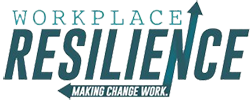We were on our way back from a 40-mile bike ride when we heard people talking up ahead on the trail. As I peered off into the distance, I saw 5 people sitting in the grass, their bikes strewn about at the top of the hill. They had just accomplished a ride up the fairly steep elevation. It obviously had taken a lot of energy for the crew, since they had decided to take some time out to catch their breath. From our vantage point, we couldn’t see anything but the 5 people and the top of the hill.
My husband yelled to me, “I wonder if there’s anyone else coming up the hill?” I didn’t say anything, and then I heard him yell to the group and ask if there were anymore still making their way up the hill. They replied with a no and began to get back on their bikes.
As we rode down the hill, I thought about what had just transpired. It would have never occurred to me to think about whether there was anyone else coming up the hill. It just wouldn’t have been of concern to me. Nor would I have even followed my thought up with a question directed at the crew. It just wasn’t important.
However, this was very important to him. I assume he was thinking about sharing the trail as he flies down the hill, going 30 miles an hour. I also assume that he was being cautious and safe.
The whole potential danger would have never crossed my mind. I just assumed that no matter what was coming at me as I flew down the hill, I could control my bike and maneuver around the obstacle safely.
If we’re riding and we get off course, I don’t think it’s a big deal. Eventually, we will figure out where we are and find our way back to our path. It always works out. In fact, sometimes the alternative journey that we end up taking when we’ve lost our way turns out far better than our original planned itinerary.
Our perspectives in life can be explained in the experience that I just shared with you. He is always looking ahead, gauging the dangers and obstacles in his way and looking for the best, safest path to get to his end goal. In contrast, I’m just riding toward my goals in life, assuming that when something happens, I will have confidence to deal with it in the best possible way. If I get off course and lose my way, I trust that eventually, I will figure it out. I’m always certain that it will work out just fine.
I’m not saying that one way of thinking in your personal and professional life is far better than another. What I am saying is that it’s good to think about WHERE you fall on this continuum. There are a lot of uncertainties and disappointments as you make your way down the mountain of life— eventually you will hit a huge pothole and it will get you off track.
This will occur no matter how diligent you are at assessing potential risks. Eventually, something will happen.
Having a combination of the two approaches to life is really your best bet. Be as proactive as you can, assess the possible dangers and risks, but beyond that, try to just live life and chase your goals.
And make sure you have the skills of RESILIENCE to weather the storm.


